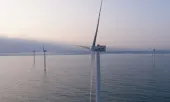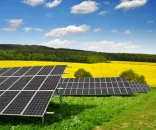Power bills with hefty arrears upset local Pakistani govt, farmers
The Khyber Pakhtunkhwa government and farmers have accumulated over Rs400 million arrears in power tariffs.
It turned out that the Peshawar Electric Supply Company charged their tubewells less tariff over the last few years than the one approved in February 2007.
According to a senior officer of the provincial government the anomaly was detected by an internal audit team of Pesco in December 2010 saying the Pesco had been charging the agriculture and irrigation tube wells in Khyber Pakhtunkhwa for a long period, according to a report by the Dawn.
The official said Pesco had begun recovering the arrears by adjusting them in monthly bills issued to the provincial government departments and farmers to their misery. He said the act had serious financial implications for the departments and farmers alike.
The provincial irrigation department, according to one of its superintendent engineers, own and operate over 350 irrigation tubewells and 606 tube wells installed as part of salinity control and rehabilitation projects in Mardan and Swabi. Besides, the provincial agriculture department, too, has thousands of tubewells.
Similarly, there are more than 14,000 tube wells privately owned by farmers in arid areas of the province. Many farmers own tubewells in places not covered by the canal irrigation system, including parts of Peshawar, Nowshera, Dir, Swat, Bannu, Tank, Dera Ismail Khan, and Lakki Marwat districts.
According to the officials, Pesco didn’t charge the tubewell owners the new tariff ‘by mistake’ after its notification by the National Electric Power Regulatory Authority on February 24, 2007.
According to the Nepra’s new tariff revised in February 2007, an EMC official said, the D-1 (a) tariff was applicable to SCARP tube wells that involved less than 2- KW electricity load.
He further said those consumers, who had sanctioned electricity load up to 20 kilowatts, were liable to be billed on ‘single-part KW per hour rate’ by applying D-1 (a) tariff given in the Schedule of Tariff.
“Prior to the introduction of the new tariff, there used to be two separate tariffs for the agriculture and irrigation tube wells,” said the official, adding that the new tariff was quite higher than the old ones.
The EMC official said the matter was discussed at the highest level in the province following which the government moved the Consumers Affairs Division of the Nepra yet again.
“We filed the review application because we feel the Nepra should give us a full hearing as the tariff applied is neither justified nor legally covered,” said the finance manager.
The official said the power tariff meant for SCARP tube wells couldn’t be applied to non-SCARP tube wells owned and operated by the provincial irrigation and agriculture departments. The tariff meant for SCARP tube wells was 50 percent higher than the one applied to non-SCARP tube wells, he added.













 Advertise
Advertise











